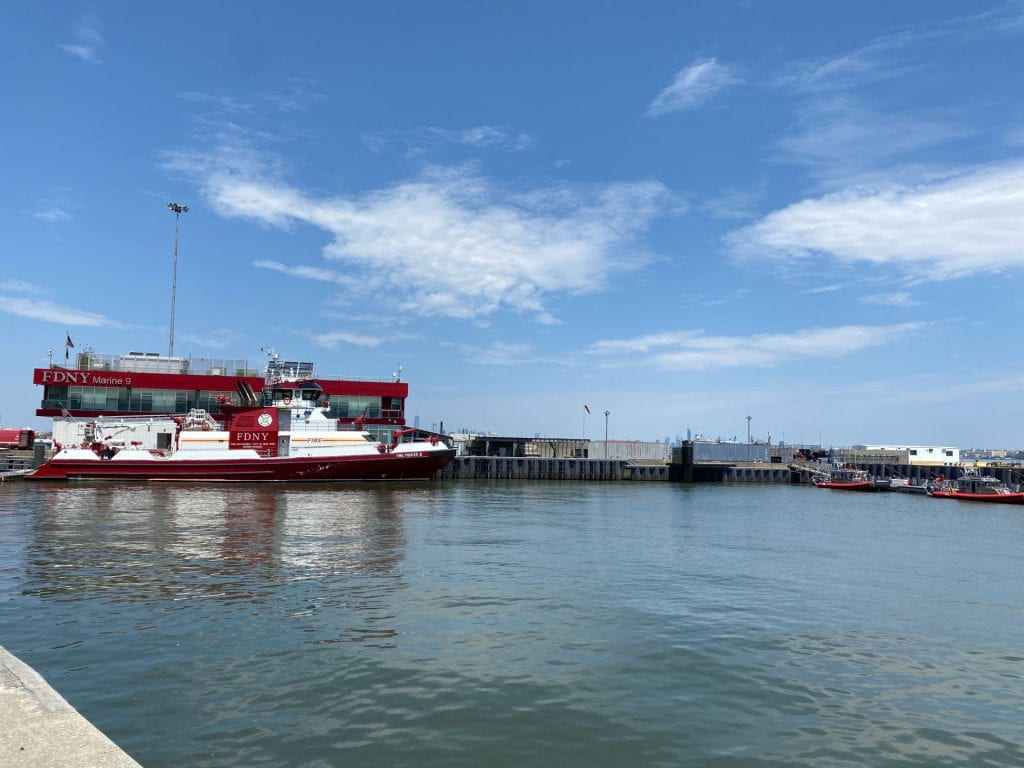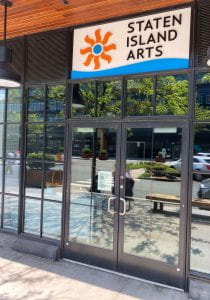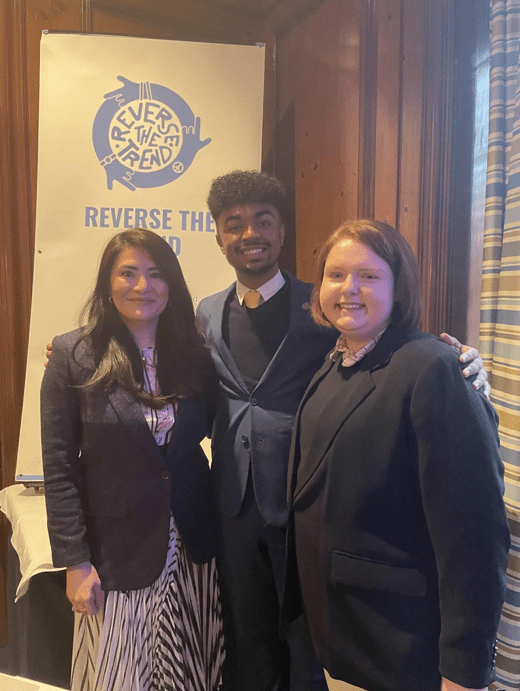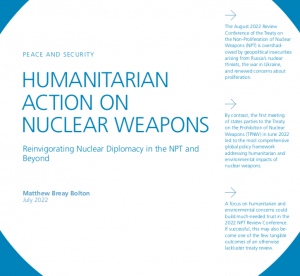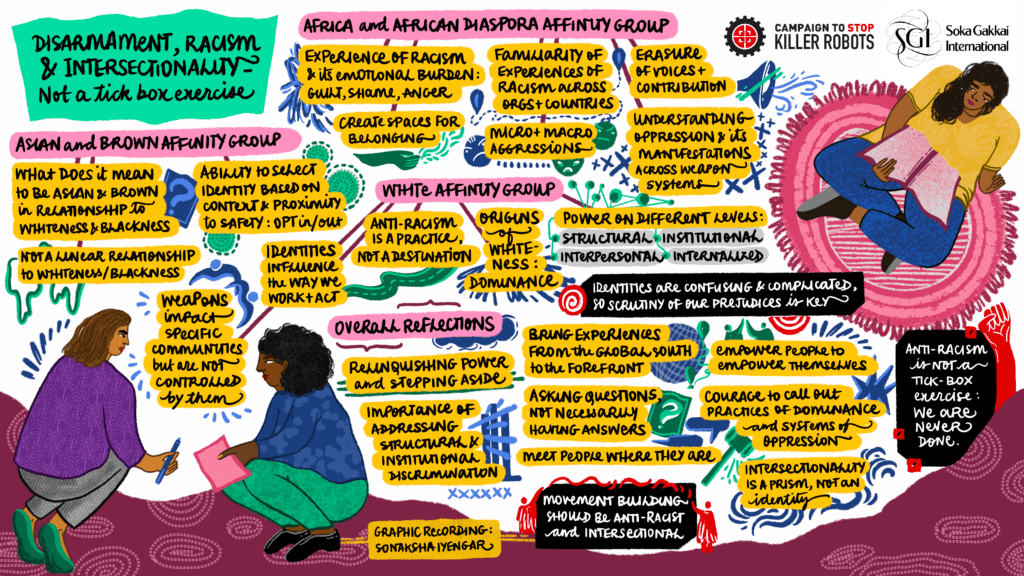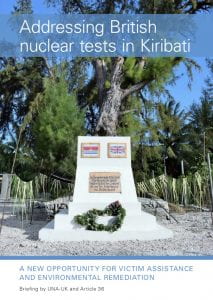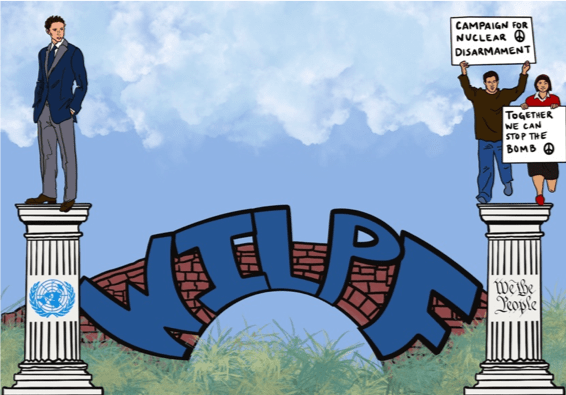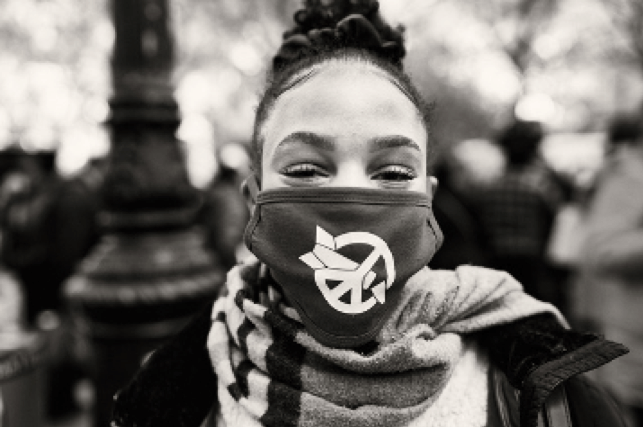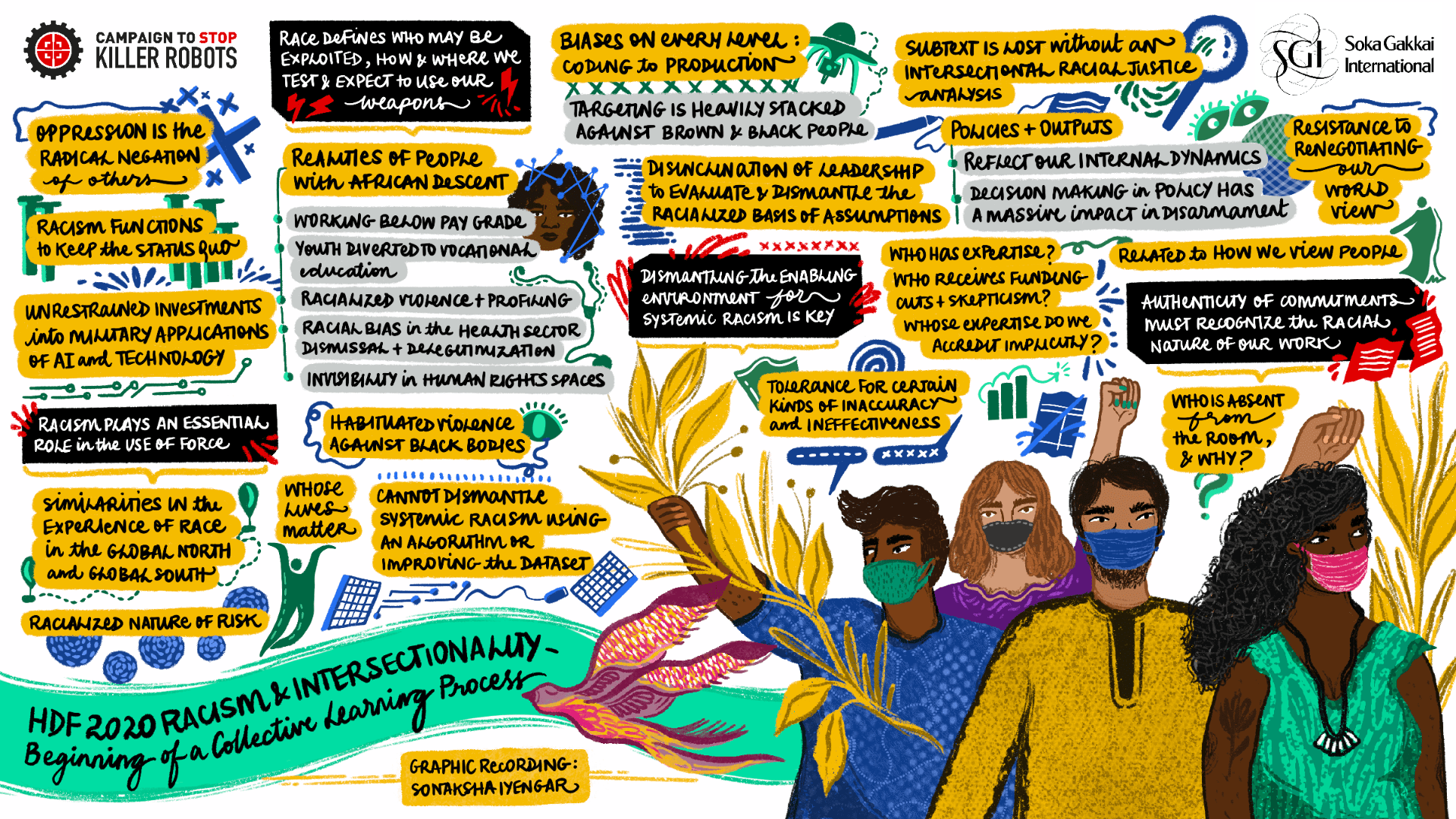The following reflection is from Antje Hipkins ’23, a Pace University undergraduate who participated in the POL297L Global Politics of Disarmament and Arms Control class in Fall 2022. Students were given service learning assignments with local disarmament advocacy organizations working in New York City. Antje’s assignment was with the Reaching Critical Will project of the Women’s International League for Peace and Freedom.
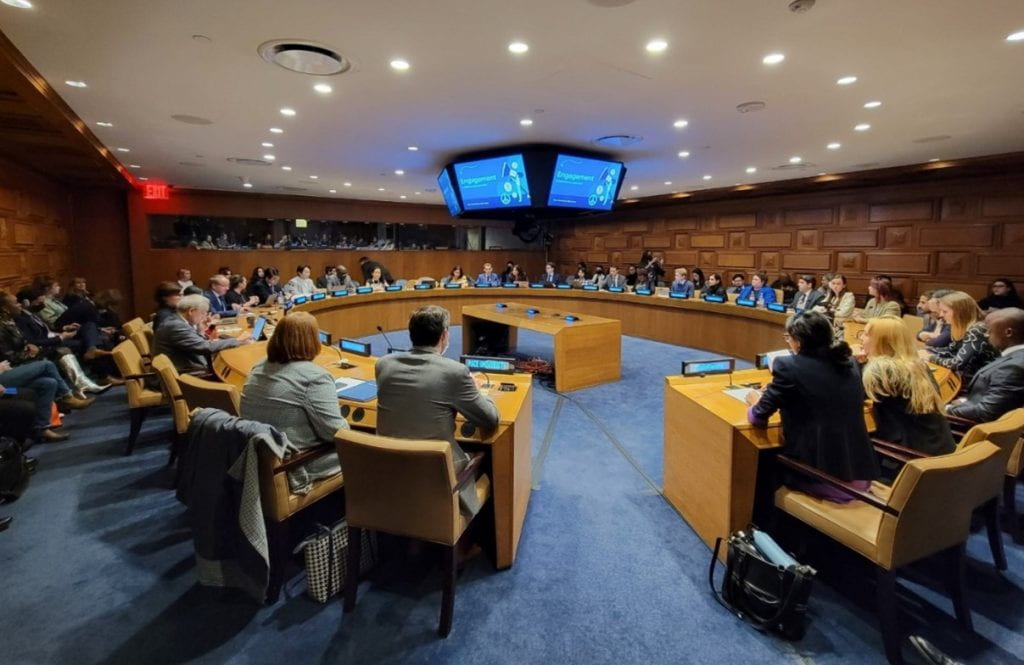
#Leaders4Tomorrow present their ideas to advance disarmament education in UN General Assembly First Committee side event. Photo: Youth4Disarmament
For my service learning assignment, I had the pleasure of working with four classmates on a project surrounding youth and disarmament education at the United Nations. We helped draft a joint statement that was read at the UN General Assembly First Committee (Disarmament and International Security) on 13 October 2022 and was cosigned by over 60 NGOs, including the Nobel Peace Prize-winning International Campaign to Abolish Nuclear Weapons (ICAN). Drafting a statement on behalf of and with such a large group of people – students, young people, and educators all over the world – was a daunting task, but we were so encouraged to have received such resounding support from so many respected organizations.
Following the statement’s delivery, my colleagues and I continued working on a project in collaboration with Reaching Critical Will (RCW) to draft weekly articles monitoring the statements and resolutions made by UN Member States concerning their various stances on youth and disarmament as well as disarmament education. Being able to participate in this project has been one of the highlights of my collegiate career so far, as it has allowed me more practical experience, and even in-person experience at the UN, than any other class I have taken. Being able to hear our words being read in the halls of the UN has been an incredibly validating and encouraging experience.
I have deeply enjoyed being able to gain new skills, tools, and connections not only through this incredible project but throughout the entire course of this class,. I was not previously aware of how interconnected the struggle for disarmament is with many of my core interests, such as intersectionality, environmentalism, and humanitarianism. What I have learned in the past few months has strongly impacted the way that I foresee myself going forward with my career: I intend to continue working for disarmament in all of my future endeavors. For instance, I have been interning with the UN Ecumenical Office, where one of their main focus areas is nuclear disarmament. They also place immense importance on ensuring those who are most affected at the center of their efforts toward peacemaking and disarmament, which is one of the most important things I have taken away from this course.
It is easy to become discouraged when learning about how insidious and complicated the politics are surrounding arms control issues, particularly concerning nuclear weapons. Through this experience, however, I was inspired by people my own age who are taking steps in their own communities all around the world to promote disarmament. It will be us, the young people, who will inherit this complex web of weapons and destruction, and it is up to us to work as hard as we can to dismantle it. It was so encouraging to see not only classmates, but people from all over the globe pouring their passion and energy into disarmament efforts. As long as we continue to work together, we can achieve anything.

